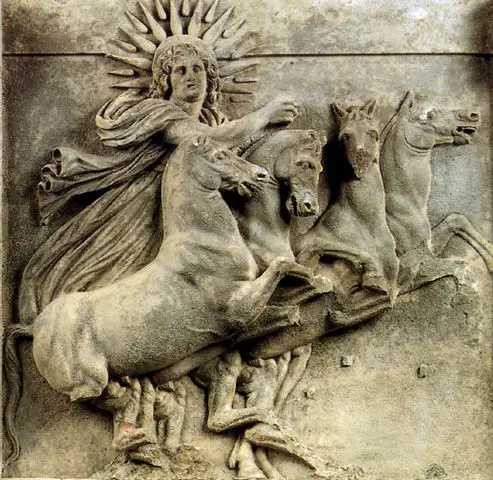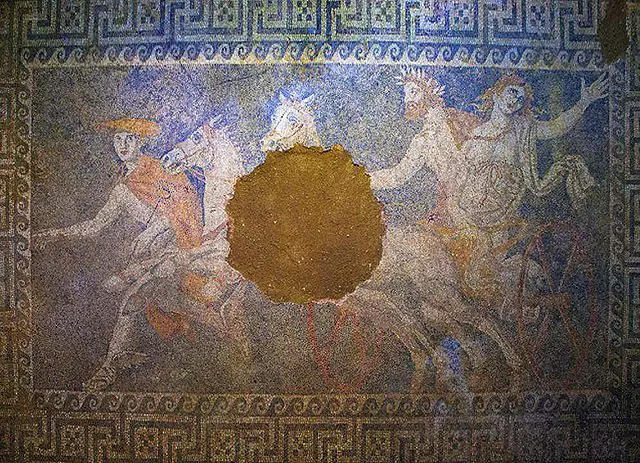| Born | December 16th, 1775 |
| Died | 18th of July, 1817 |
| Famous Quote | “Life seems but a quick succession of busy nothings.” |
| Known For | Starting the transition to 19th century realism literature, creating courtship rituals in the west, bolstering women’s rights. |
| Region Of The World | England, 18th and 19th century. |
Few authors in history have had the influence upon society as Jane Austen. Living in England during the 18th and early 19th century she would go on to publish six full length novels. Each one of these works continue to sell millions of copies worldwide and have forever changed history.
Jane Austen’s books have changed history in one major way. Through her writings Jane Austen highlights the dependence of Women in the 18th century upon marriage. She wrote subtly critical works that forced readers to ask questions of equality and forced dependence within society.
Here at The History Ace I strive to publish the best history articles on the internet. If you like this article then at the end consider subscribing to the free newsletter and sharing around the internet.
Without wasting any time, here is how Jane Austen changed history with her novels.
Societally Critical English Literature Before Jane Austen
The history of English literature before Jane Austen romanticized the gentry of the English countryside. Written works such as Frances Burney’s Evelina.
These works idealized the slower lifestyle of the landed gentry in the English countryside. The societally critical aspects of English society were a direct undertone. This was done purposely as it would arouse suspicion and fail to be published in conservative England.
Hardly anyone touched upon the troubles that women faced in this landed gentry world. Women were depicted as having a lavish lifestyle of relaxation and privilege. While this was not true, it did sell copies so authors kept on writing.
Further, the landed gentry of the English countryside also held considerable power. Any challenge to this, either direct or through literature, was heavily suppressed.
Starting in the 16th century the landed Gentry that Jane Austen would come to write about provided the majority of parliament seats in England. This would make it almost impossible to provide criticism to their social structure.
Modern historians have studied the massive level of censorship the landed gentry forced upon England during the 18th century. A good article surrounding this topic is Hal Gladfelder’s “Obscenity, Censorship, and the Eighteenth Century Novel.”
Jane Austen would forever change history by changing how the English countryside viewed the role of women within society. However in order to do so she would have to navigate the strict censorship laws of 18th and early 19th century England.
Jane Austen Pioneering English Social Critical Writing of England Landed Gentry
Jane Austen forever changed history by successfully writing critical novels of the English Landed Gentry’s gender relations and power structure within 18th/19th England.
This is where the brilliance of Jane Austen’s writings comes into play. On a surface level novels such as Sense and Sensibility, Pride and Prejudice, Emma, and Mansfield Park all provide romanticized views of the English Countryside.
To the censors of England this is what they wanted to see. An idealized vision of their homes and lifestyles that would cement their lasting legacy. Jane Austen provided them with stories of romance, marriage, and family values.
However, when you take a much deeper dive into Jane Austen’s writings you begin to notice something. All of the Women in her work grow up in an incredibly closed off environment where they are forced to depend upon others for survival.
Jane Austen’s characters are born into families where they have to listen to their father and mother. Then when it comes time for marriage they are given a list of suitors or have one chosen for them. Once the women are married off they then have to listen to their husbands.
Jane Austen changed history forever by providing a societal critique of the courtship system in the idealized world of the English landed gentry. Jane Austen’s work presented an incredible irony to the elite of English society.
During the time of Jane Austen England would begin to ban slavery seeing it as inhumane and demeaning. Jane Austen provided witty and ironic novels that on the surface created a romantic world, however when readers paid attention they would see that Jane Austen asks the following question of her readers.
Is a woman’s place within a marriage to be a servant or a partner?
No quote demonstrates this better than when the character Mr. Collins in Pride and Prejudice remarks on the unfit characteristics of a wife in the main character Ms. Elizabeth Bennet.
“Pardon me for interrupting you, madam,” cried Mr. Collins; “but if she is really headstrong and foolish, I know not whether she would altogether be a very desirable wife to a man in my situation, who naturally looks for happiness in the marriage state.”
Pride and Prejudice, 20
Here we can see Jane Austen provided a critique of the English landed gentry of society. Because of this the world began to see the plight of women in the elite of England’s society.
As a result Jane Austen would forever change history. Next we will see how her works continued to change history up until the modern day.
How Jane Austen’s Works Changed History Forever
Jane Austen provided the world with a scathing review of the lack of women’s rights during the 18th and 19th century in England.
After Jane Austen’s death in July 1817 her work would begin to see a massive rise in popularity, both across men and women audiences.
As a result of this England and eventually the entire western world began to radically reinvent its concept of equality and marriage.
Starting in the mid 19th century schools for women started opening up across England. Examples of this can be seen in Queen’s College being founded in 1848, 30 years after the death of Jane Austen.
Further the concept of dowry started to disappear in England during the late 19th and early 20th centuries. This coincided with the rise of Jane Austen’s works.
What Jane Austen started eventually would lead to social reform for the women across the social strata of English society. Further, as the United States and other parts of the world emulated the British Empire’s social values Jane Austen’s works began to influence women’s rights in other parts of the world.
Because of this Jane Austen’s works pushed for equality between men and women in both society and in marriage across the world. As such, Jane Austen forever changed history with her written works.
Conclusion
There you have it; an entire article written about how Jane Austen forever changed history.
Jane Austen continues to be one of the most famous authors of all time. Her most famous work Pride and Prejudice continues to be translated and adapted for modern audiences.
Jane Austen would never marry. It is rumored that she only had one love her entire life, the Mr. Tom Lefroy. However this did not work out and Jane Austen was heartbroken and never again sought marriage.
I hoped you liked this article here at The History Ace. If you did, you should consider subscribing to the free newsletter and sharing around the internet. It helps others enjoy the same history as you do.
Further, you can check out some of the other articles below.
-
How The American Revolution Changed The World

Here is how the American Revolution changed the world. Many people are not aware of just how important this event actually was.
-
Why The Roman People Loved Chariot Racing

Why did the Roman people love chariot racing? Well it all comes down to these 3 reasons.
-
The Design and Color of Roman Chariots

What was the design and color of Roman Chariots? Were they faster or slower then normal chariots? Well here is everything!
Until next time,
Nick